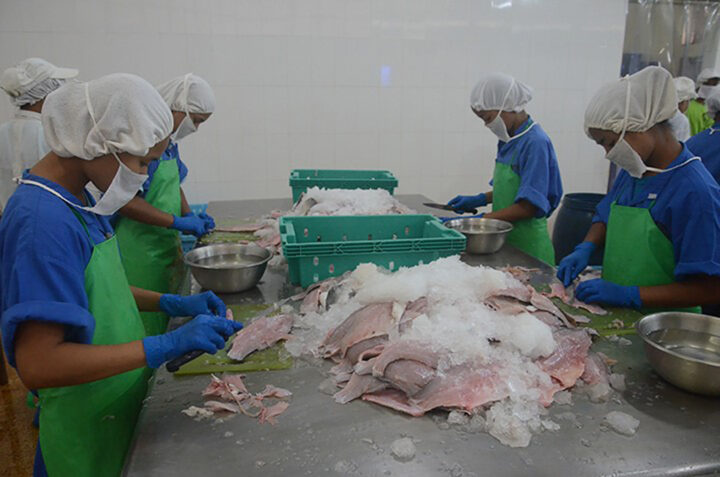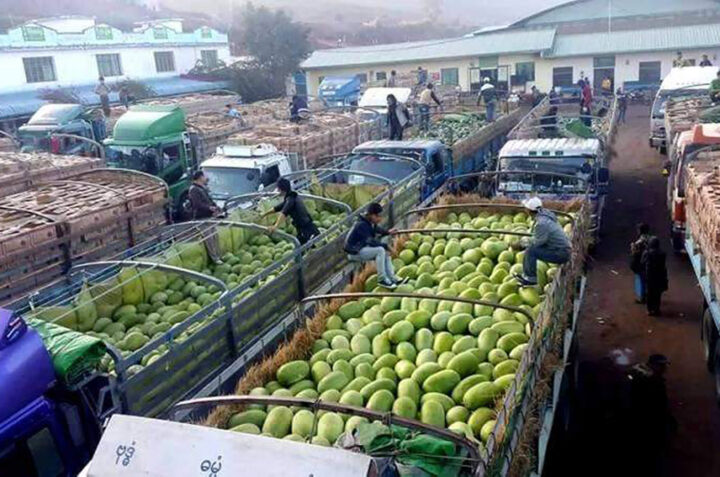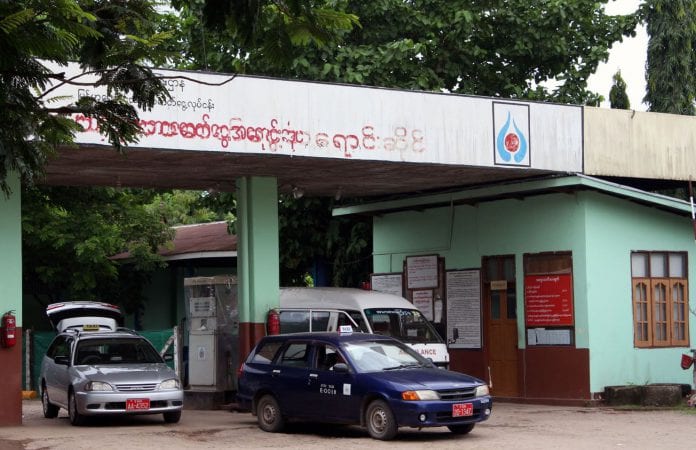![]() — Home — Business News
— Home — Business News
Weekly Business News from Myanmar
-

Myanmar imports nearly USD $ 3.14 billion worth fuel oil in 2019 – 2020 financial year
Myanmar spent nearly US$3.14 billion importing over 5 million tonnes of diesel and gasoline in the 2019-2020 financial year, according to the trade data released by the Ministry of Commerce. Over 5 million tonnes of fuel oil with an estimated value of $3.26 billion flowed into the country during 2018-2019FY, the trade data issued by the Central Statistic Organization indicated. The oil and gas sector has been crashed during COVID-19 outbreak. Oil price went negative on 20 April as there is no place to store all the crude the world is producing, but not using. The global market remains broken, leading domestic oil price plunge to more than 50 per cent in April against January’s prices. Consequently, domestic oil prices have been on the decline since 10 January 2020 owing to a fall in global oil prices. On 8 January 2020, oil prices were pegged at around K905 per litre for Octane 92, K995 for Octane 95, and K985 for diesel and premium diesel. Then, the prices in the domestic market have extended its drop in May -

Myanmar earned nearly USD $ 850 million from fishery export in 2019 – 2020 financial year
Myanmar fetched US$ 847.5 million from exporting over 600,000 tonnes of fisheries products during the period from 1 October 2019 to late September this financial year, an increase of some US$126 million from the year-ago period, according to figures released by the Ministry of Commerce. Myanmar’s fisheries export was worth US$721.865 million during the same period last year. The Department of Fisheries under the Ministry of Agriculture, Livestock and Irrigation set a record for foreign income from fishery exports over a period of ten years. The department is working closely in collaboration and coordination with foreign agencies such as FAO and JICA and other regional and international organizations related to fisheries in order to strengthen capacity building on improving fishery statistics collection and interpretation. The department is closely working with the fish breeders, processors and exporters to ensure Myanmar marine products meet the rules and regulations of importing countries. At the same time, fishery officials are trying utmost to conserve fishery resources as well as ensure sustainable development in the country’s fishery sector. -

The plans are underway to reform agricultural sector after COVID – 19 pandemic
Plans are underway to reform the agricultural sector after COVID-19, according to the Ministry of Agriculture, Livestock Breeding and Irrigation. The government allowed Ks 92.61 billion for people aiming to cushion the impacts upon the agricultural sector and to develop socio-economic life of the rural people due to the COVID-19 pandemic , says Dr Aung Thu, Union Minister for Agriculture, Livestock Breeding and Irrigation. Thus Myanmar had drawn the COVID-19 Economic Relief Plan-CERP which is a timely intervention by the incumbent government to cushion financial, social and economic impact of COVID-19 pandemic. -

The watermelon trucks are stranded at Myanmar – China border checkpoints due to the tight security measures
Tight security measures at Kyin San Kyawt and Mang Weing checkpoints on Myanmar-China border have resulted in a slowdown in the entry/exit process and a hundred of trucks queuing up at the checkpoint, fruit traders said. During the previous weeks, around 100 trucks of watermelons and muskmelons could pass through Kyin San Kyawt border checkpoint. The inspection at China’s checkpoint takes longer for drivers beginning from 16 November, and only 50 trucks can enter border crossing. If around 200 watermelon/muskmelon trucks enter the Muse land border, the traffic congestion will worsen. Muse depot traffic control is monitoring the trucks at its upmost, said the owner of Khwar Nyo Fruit Depot. -

Myanmar received over USD $ 25.3 billion in FDI in the past five years under the incumbent government
Myanmar has received over US$25.3 billion in foreign investment under the ruling government over the past five years, with largest investment in manufacturing, transport and communications sectors, according to Myanmar Investment Commission. From 2016-2017 fiscal year to October this year, nearly 980 businesses invested US$23.934 billion in Myanmar. Under the special economic zone law, Thilawa SEZ has received US$1.377 billion invested by 60 businesses. -

Yangon Region Entrepreneurs Association (YGEA) is exerting to seek the large-scale gold trading permit with local investments
Yangon Region Gold Entrepreneurs Association (YGEA) will exert its effort in seeking large-scale gold selling and buying permit with the local investments, said YGEA Chairperson U Myo Myint. “We want to link with global gold trading hubs. We want to get into global gold trading. That is why we will again seek the gold trading permit for a large scale,” he added. At present, trading worth above K200 million is considered as the large-sale trading in the domestic market. In contrast, middle-scale trading covers above K100 million and small-scale is meant for trading valued around K50 million. “YGEA’s trading value stands at above K200 million, with selling at least two visses of gold (a viss equals to 1.6 kg). Consequently, we are applying for the large-scale investment permit,” he highlighted. -

Sagaing Region is planning to grow 600 more acres of onion and garlic in December as winter crops
Sagaing Region is planning to grow about 600 more acres of onion and garlic as winter crops, according to the local farmers. “We are planning to grow more crops in December. We are relying on winter onion more than monsoon onion. Not only onion but also garlic is grown mostly in winter because there can be less moisture in harvest time. Fresh onion and garlic will emerge in March and April. This year, each farmer will grow one or two acres of onion and garlic, said a local farmer from Katha. Now, the local farmers are preparing to grow the onion and garlic, collecting the seeds and repairing the farmland. -

The value of bilateral trade between Myanmar and China reached USD $ 12 billion in the past 2019 – 2020 financial year
The value of Myanmar’s trade with China through the maritime trade route and land border topped $12 billion in the past financial year 2019-2020, the Ministry of Commerce’s trade data showed. The MoC reported that imports surpassed exports in trade with China, with exports reaching over $5.4 billion and imports valued at over $6.7 billion during the last FY. Myanmar trade deficit in goods with China was estimated at over $1.3 billion, the data released by the Ministry of Commerce indicated. This year, China has been stepping up border control measures to contain the spread of the COVID-19, causing traffic congestion in the border areas of two sides. Between the 2016-2017FY and the 2019-2020FY, China has been Myanmar’s largest trade partner beyond the regional states. -

The onion prices dive as demand collapses amid the coronavirus resurgence
The prices of onions plunged to below K1,000 per viss (a viss equals to 1.6kg) owing to the bulk supply and the closure of western border amid the coronavirus resurgence. Earlier, onions were highly demanded by Bangladesh, India and China. Now, the trade with Bangladesh and India has halted to contain the spread of the coronavirus. That is why the price is on the decline, said onion depot owner from Mandalay. The western border of Myanmar is still closed due to the coronavirus resurgence. At present, there is a steady demand by Muse border and domestic markets. However, the stockpiles of old onions cause the price to decline lower. The onion prices move in the range of K700 to 900 per viss depending on quality on 16 November 2020, on the back of bulk supply of 200,000 visses to Yangon market. -

Myanmar imports over a quarter-million tons fuel in October 2020 through sea route due to the domestic consumption has increased
Myanmar has imported over a quarter-million tons of diesel and gasoline in October through sea route as the consumption has increased in open season, according to the data from the Ministry of Commerce. On October 4, the country imported 48,390.86 tons of diesel worth $16.096 million while it imported 47,950.61 tons of gasoline worth $16.4286 million and 16,942.97 tons of diesel worth $5.749 million between October 4 and 10. It also imported 23,922.51 tons of gasoline worth $8.307 million tons on October 18.
Business News
Copyright © 2014 Business Information Center All Rights Reserved.







